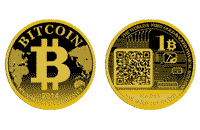
Money
How is money created in the current system?
Most people think of "money" as something real, something kind of like gold or silver - but in general that is simply not what "money" actually is today. It used to be "hard" money - redeemable for a commodity - until 1971, or 1933 depending on how you count. Nowadays, government issued "money" - whether printed, minted, or simply appearing in digital form (as, for instance, in credit card transactions) - is, in fact, a promissory note backed by nothing. One cannot redeem fiat money for gold, silver, kilowatt hours of energy, or anything except more pretty pieces of paper. Technically, the "money" you use is not money at all, but currency. The fiat note "ensures" payment to whoever holds it only by custom, and when the US dollar (or any other fiat currency) becomes worthless, you have no complaint.
It is easy to protect yourself from government money debasement by using silver rounds or crypto currency, or local alternative currencies. Alternative currencies are a wonderful example of building parallel structures, and our decentralization principle that what can be done locally, probably should be. Contrary to popular belief, no one is compelled to accept dollars in payment, unless it is a debt with an unspecified payment medium. If you agree to pay or accept e.g. silver or bitcoin, there is no legal requirement that you accept dollars instead. Fiat currency works because of people's irrational faith in the federal government. As modern crypto-currencies and commodity-backed "colored coins" become more popular, governments will lose their ability to plunder society through monetary debasement aka inflation.
A common myth is that the money supply cannot be static. How convenient for rulers, who use this falsehood as an excuse to create money out of thin air. Since population and the economy grow, so too, the supply of money must grow, too, they reason. Wrong! Any amount of money it optimal, the Austrian school of economics shows, since the only effect of more goods being bid on by the same amount of money is ... cheaper prices! The ruling authority chartered by the US State to be the monopoly distributor of "promises to pay" in the US is the Federal Reserve Board. The "Fed" is essentially a cartel enforcement agency fully owned and operated by the US State. Don't be fooled by its nominal "private" status - the US takes all the profit, appoints the governors, and gives the orders. It does so, regularly increasing the money supply - literally out of thin air, with nothing more than accounting entries denominated in dollars. The process is obscured by using treasury notes lending tranactions to "launder" the new money.
Since the new money is generally distributed to the public through loans, and wealthy connected elites get the bulk of these loans, wealth inequality is the predictable result. So long as government can create money out of thin air and distribute it to cronies, covertly robbing all the people currently holding dollars, income inequality will persist. Government officials get to print "money," so it is clear how they profit through seigniorage. What is the quid pro quo? Since the Fed's underling banks are permitted to loan out ten times as much as they hold in reserves (through the so-called "fractional reserve" system), they are quite happy with this corporatist banking system. Once loaned out (to finance the building of a home, the purchase of a car, or the development of a new business) the "promises to pay" go into the economy, and end up re-deposited either in the same bank or (usually) another bank, providing possibilities for still further expansion of the money supply. As a result of fiat money creation and, more generally, monetary manipulation by government, the economy suffers major booms and busts. Prior to the fiat money era, booms and busts were generally much less severe, and were self-correcting. One notable example was the recession of 1920-21. Never heard of it? That's because government did nothing about it, so it quickly dissipated without any major repercussions.
How is money created in an anarchist federation?
Modern monetary theorists have helped clarify the obvious point that government-controlled banks are not essential to the design of the system. Anybody who wishes should be allowed to create currency of any type, unbacked or backed by labor hours, or by a commodity. This is called free banking. Fortunately, digital peer-to-peer payments through firms like Square, PayPal, Google, and Apple are increasing in popularity, so it is only a matter of time before free banking prevails and corporatist banking is dead - put out of business by libertarian capitalism.
Where can we see key elements of a new approach to monetary policy emerging today?
Bitcoin, Ethereum, Ripple, and many other firms are bringing us the latest improvements in crypto currency. "Crypto 3.0" is here, when property registration, smart contracts, stock issues, and other instruments have their veracity documented in a public, unalterable manner, bypassing corrupt and incompetent statist bureaucracies. The end of fiat money will have an added boon - aggressor States will no longer be able to fund wars and aggressions though money-printing. Hard money and free banking will be a blessing for peace on earth.
Effectively and efficiently developing a pipeline that delivers money to political elites (and their cronies) is the way the money system currently works. Developing networks of crypto currencies and free banking is critical. The nearly century-old Federal Reserve Act, the US State's original monetary sin, has come back to haunt us. It is time to kill that system. Fortunately, technology has given us the tools, and the path is clear - separation of money and State.
Also see:
Anonymous Crypto Currencies that allow creation of alternative currencies.
Further reading:
Robert P. Murphy, The Depression You've Never Heard Of: 1920-1921
Hogeye Bill, How Money is Created.
Murray Rothbard, History of Money and Banking in the United States.Mutualist.org, Tucker's Big Four: The Money Monopoly
 Intro |
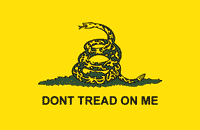 America |
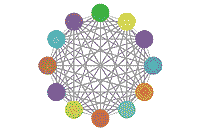 Federation |
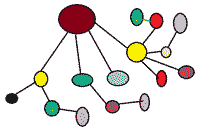 Decentralization |
 Liberty |
 Culture |
 Money |
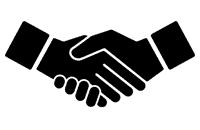 Markets |
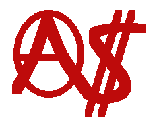 Hogeye Bill's Anarchism Page |